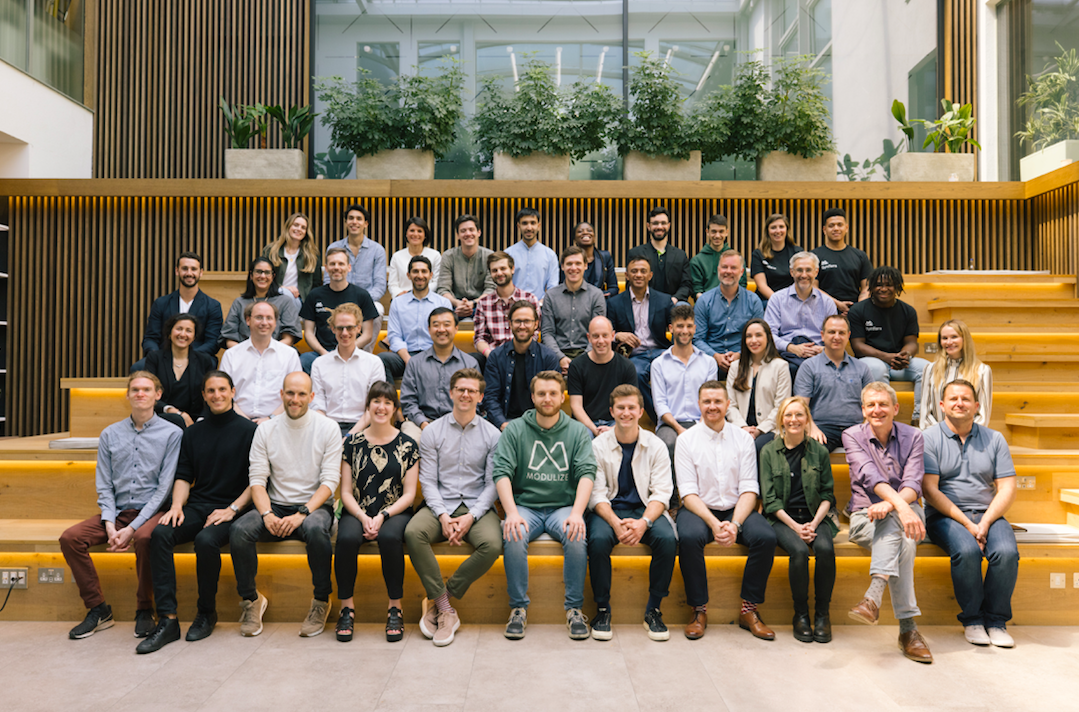Global proptech venture capital firm Pi Labs has concluded its tenth growth programme for early stage proptech startups, with the participating companies set to secure $18.6m in seed and pre-seed funding. The funding will enable the startups to fuel growth into new markets, expand their teams and undertake further product development.
Pi Labs selected nine companies, after reviewing 973 companies from 47 countries, based on the potential of their technological innovations to reshape the future of the physical world and how we engage with the built environemnt.This year’s startups haved developed a range of technological solutions from virtual reality workplace training, digital sustainability measurement tools and next generation tech to streamline construction design.
Below are the startups from the Pi Labs 2022 Growth Programme:
- CONXAI (Germany): The first no-code AI platform for the architecture, engineering and construction industries
- Firmus (Israel): Utilises advanced AI technologies to analyse building drawings’ data, uncover and manage the mitigation of hidden design issues that have a potential impact on bidding and building processes
- GREENPASS (Austria): Enables planners, developers and investors to compare the climate resilience of different project designs to optimise the sustainability and profitability of real estate developments and open spaces
- Laiout (Norway): Automates the creation of early-stage architectural floor plans
- LiveCosts (Ireland): Smart construction software to automate cost management for builders and contractors
- Modulize (Norway): A single collaborative software solution for offsite construction, optimising design, planning and procurement
- Moonhub (UK): A virtual reality training platform for the workplace, designed to scale, provide high level data and employee analytics
- Route Konnect (UK): Real-time video processing to help organisations understand the movement of people and vehicles across large multi-camera locations whilst fully preserving anonymity.
- SymTerra (UK): Built to eliminate uncertainty from construction sites, SymTerra is an integrated communication tool that enables teams to rapidly share knowledge and capture change in real-time.
More from News
- What Is Google’s AlphaGenome And Why Does It Matter For AI?
- What Are UK Innovator Passports And Who Uses Them?
- Experts Share: Are There Other Global Initiatives Similar To Trump’s “Gold Card” Visa?
- How Are The UK And The Ocean Linked To Threat Detection?
- Driverless Vehicles: Why Is Tesla Under Investigation?
- Professional AI Use: Is There A Double Standard In Who Uses It?
- Experts Share: How Can The UK Maintain Its Position As A Top Tech Hub Globally?
- Amazon’s Same-Day And Next-Day Delivery Now In 4000 More Areas
All the companies participating in the 2022 Growth Programme have secured capital for their ealy stage funding rounds. Seven out of the nine startups have officially closed their rounds, which included involvement from global investors, VCs, institutions and angels. At the end of the programme, which took place between February and May, the companies pitched to an audience of 400, which included investors, entrepreneurs and potential clients, as part of the VC’s Demo Day.
Faisal Butt, CEO and Founder of Pi Labs, said: “Despite the challenging fundrasing climate, particularly for early stage technology startups, the volume of capital that this group has secured reflects both their quality and the weight of funds targeting proptech. We’re laser-focused on finding and backing innovators who can address some of the most pressing needs across the real estate value chain, and working with founders who will positively impact how we build and engage with the physical world. Through our global ecosystem, we were able to facilitate over 240 introductions to VCs and angel investors to boost their access to fundraising opportunities to support their growth.
These nine companies showcase just how far and wide we have cast our scouting net around the world, and delivered on the challenges we set for ourselves in this year’s Growth Programme, to increase the average stage of company that we bring on board, and importantly to continue to champion diversity within the sector.”
Pi Labs’ global proptech portfolio now consists of 72 companies, having taken 55 through its accelerator programme over the past 10 years. Out of these companies, 73% have seen an uplift in valuation, with some such as Landtech, now an established global proptech company, employing hundreds of people across numerous markets. Companies that have gone through the accelerator have developed solutions in construction technology, robotics, 3D visualisation, sustainability technology, workplace wellbeing, VR workplace training and AI design.



